
Weeping. I watch her weeping. My beloved weeps, while she reads this book.
This book, we read it together. Our hearts ripped.
The book calls itself a mosaic. It is written in an unusual style.
In fragments.
Shards of the life of Archbishop Lefebvre juxtaposed with fragments from the Twentieth Century, which serve as images of the Immense Cross, which Archbishop Lefebvre carried for the Church.
Fragments from:
Fatima.
The Second Vatican Council.
Or even Chile: a bishop smoking a cigarette, while he celebrates the Mass on television for all to see and emulate – because now that the Eucharist has been declared less a sacrifice and more a celebration of a family meal – the Last Supper – why should one not smoke at a family meal?
All of these interweave with the story of the French Archbishop, voice of resistance at Vatican II and later founder of the Society of St Pius X. And one is also tempted to say: virtually single-handed saviour of the Latin Mass …
My beloved weeps and weeps. I look at her. I do not openly weep. I am a man. It is harder for me to weep like this. Or do I delude myself? Is it that I simply do not care enough? Is my heart still not pierced sufficiently by the immense tragedy – even after all these years of studying it – that fell upon the Church in the 1960s?
Is the simple truth that my beloved’s heart is more awake than my own?
The Horn of the Unicorn is a biography of Archbishop Lefebvre – and more. This is a review of that book – and more.
By writing this review in a similar, unusual style – fragments and shards juxtaposed – I may give you the Reader some sense of how the tale is told here – the tale of poignant, terrible tragedy placed side by side with episodes of valour, commitment, sheer guts …
David Allen White records his astonishment at how Archbishop Lefebvre was treated by the Vatican hierarchy under Paul VI in the 1970’s – while that same:
hierarchy had turned its face away without comment from clown masses, polka masses, pizza and coke masses, as well as Hans Küng denying the Bodily Resurrection and Edward Schillebeeckx denying the Virgin Birth.
Allen does not mention it, but Schillebeeckx once described the traditional understanding of the Crucifixion as “a sadistic, bloody myth” …
Allen does not mention Valentin Tomberg either. But in this mosaic of a review, we pause for Tomberg’s remarks (in Lazarus Come Forth) that:
The modernizing theologians … busying themselves with “demythologising” in the sense of eliminating the miraculous and the supernatural … are basically heretics …
“Christ´s saying to Pilate:”My Kingdom is not of this world”, is valid also for Christianity and for the Church. Now the so-called “demythologizing” humanist theologists want to adapt Christianity and the Church to this world, to make it into a piece of this world.
They call it “modernising”- adaptation to the “spirit of the age” and its requirements, including its “progress”.
Thus Prof. Mag. Doctor. Edward Schillebeeckx, Professor of Dogmatism and Theological History at the University of Nijnegn, (Holland), in answering the question: How did it happen that the Netherlands are in advance of the development within the universal Church? – made the following statement: “The Netherlands were the first country where theologians, priests and laymen interested in religion approached religious problems from the aspect of humanist science and not from that of theology only. The inclusion of sociology, psychology and the humanist sciences made possible the breakthrough in general here in the Netherlands …
This and similar methods and teachings of theology are clearly symptoms of apostasy from Christianity – which indeed works in this world, but is not of it, nor of the world of psychology and sociology.
Apostasy – my emphasis.

Archbishop Lefebvre saw mass apostasy too – and had the courage to name it. (We will return to Tomberg later, in regards to what this apostasy amounts to.)
From the book—Archbishop Lefebvre at Ecône:
I no longer understand it. I no longer understand it! This is not our Church! This is no longer our Catholic Church! It is no longer our Catholic Faith.
I want to be and to stay Catholic.
So why am I required to suppress our seminary? Why am I required to suppress our Sacerdotal Fraternity of Saint Pius X? Why am I required not to perform these ordinations? There is only one reason: to bring me into line with this policy.
They want me to lend a hand in this destruction of the Church, to join in this communion which, for the Church is adultery.
I will not be an adulterer. I will keep my Catholic Faith!
That is why I refuse.
I refuse to collaborate in the destruction of the Church.
I refuse to collaborate in loss of faith, in the general apostasy.

As is well known, Pope Benedict XVI has spoken of the need to find the true hermeneutic to Vatican II. He has called for a “Hermeneutic of Continuity” with Catholic Tradition rather than a “Hermeneutic of Rupture” from it.
Yes between them both, the present Holy Father and his predecessor Bl. John Paul II have devoted thousands upon thousands of hours to this task of establishing a clear hermeneutic for the Council.
All of this might have been avoided – had the Council followed the motion tabled by Archbishop Lefebvre at Vatican II.
For as David Allen White records, the Archbishop not only publicly decried the highly ambiguous language used in the Council documents – an ambiguity of language that has fostered decades of conflict – he proposed a practical solution.
The solution was as follows:
Each Council document should have two versions.
One version would be suitable for lay people, who lacked the time and resources to comprehend technical, precise theological language. Thus did the Archbishop affirm alongside the Council, that there was a true need to include the laity.
But there would be another version with precise language, so that there could be no doubt as to what the Council actually mandated.

After the Council finished in 1965, there could be no slippery eels saying: The Council meant this, the Council meant that. The Council meant rupture …
The Archbishop’s motion at the Council was defeated. But it seems extraordinarily prescient to me.
Reading Archbishop Lefebvre’s interventions at Vatican II in The Horn of the Unicorn has been startling. His words give me a feeling of startling prescience, of a man who was awake, while others slept.
And now I have to ask: how many thousands of hours – no days, months, even years! – of toil and strife would have been saved, if his motion had been passed: that there should be a theologically precise version of each ambigous council document?
Certainly I think the Holy Father today would not be spending long, wearying hours of blood, sweat, tears trying to establish the correct hermeneutic of the Council.
No, all these wearying hours, days, months, years, decades of “damage control” would never have been necessary – had they only listened to you, Archbishop Marcel Lefebvre …
The Archbishop on the new celebration of the Sacraments:
They wanted to be ecumenical to such a point, to bring themselves closer to the Protestants in order to pray with them, that in the end they no longer affirm the Faith. And that is very grave. This diminution is excessively grave …
This Sacrifice of Calvary cannot be transformed, the Sacrifice of the Last Supper cannot be transformed – for there was a Sacrifice at the Last Supper – we cannot transform this Sacrifice into a simple commemorative meal, a simple repast at which a memory is recalled, this is not possible.
To do such a thing would be to destroy the whole of our Religion, to destroy the most precious thing which Our Lord has given us here on earth, the immaculate and divine treasure which He put into the hands of His Church, which He made a priestly Church.
The Church is essentially priestly because she offers the redemptive Sacrifice which Our Lord made on Calvary, and which she renews upon our altars.
For a true Catholic, one who is truly faithful to Our Lord Jesus Christ, anything which touches what He Himself established moves him to the very depths of his heart, for he loves it as the apple of his eye.
So, if it comes, in any way, to the point of destroying from within what Our Lord Jesus Christ gave to us as the source of life, as the source of grace, then we suffer, we suffer dreadfully, and we demand absolutely that this spring, this fountain of life, this fountain of eternal life, this fountain of Grace be preserved for us whole and entire.
And if such is true of the Holy Sacrifice of the Mass, it is also true of the Sacraments. It is not possible to make any considerable changes in the Sacraments without destroying them, without running the risk of rendering them invalid, and consequently without running the risk of drying up the grace, the supernatural and eternal life which they bring to us.
Foreword for Monarchy by Roger Buck
Have we not had all-too-ample evidence to make the case – at least make the case! – that the sources of grace have been ‘drying up’ in the Church over the last four decades?
We look at plummetting, truly plummetting vocations, Baptisms and other Sacraments, countless other indications. Has not the time come to consider the words of Archbishop more carefully, at last?
Certainly there signs in Rome that this is now beginning to happen …
How I honour you, Monsignor. You were of course, a fallen broken sinner like all of us. Reading your words, I cannot grant you de facto infallibility at all points. I think you were too harsh at times – for example, radically discouraging people from the New Mass.
O Archbishop, were you alive today, would you grant me absolution?
Because I go to the New Mass.
I have suffered deeply at the New Mass.
But I need the Sacrament. Every day I need it. I am too broken not to need it. I cannot afford to avoid the New Mass, no matter how much it has pained me …
But whether you would give me absolution or not, how I honour you. Without your courage, your stamina, your clarity – what would have happened?
I shudder. I shudder to think …
Certainly, I know that I myself have hardly a shred of your courage and clarity …
And yet how you were mocked by those, who also had hardly a shred of your courage and clarity.
This diminution is excessively grave … To no longer kneel, for example: do you think that children still believe in the Eucharist and in the Real Presence of Our Lord [when] they have never seen a priest genuflect before the Blessed Sacrament …?
In France, there are only twenty-seven out of one hundred practicising Catholics who still believe in the Real Presence of Our Lord in the Blessed Eucharist. Really, in conscience, I cannot advise anyone to attend this Mass; it is not possible.
We shall be told that we are making it a question of Latin and soutanes [French for cassocks]. Obviously it is easy that way to discredit those you disagree with.
By now dear Reader, you will gather much of my regard for this book.
We have searing tragedy and one man’s truly courageous stand. (I did not say a stand, without flaw, without blemish. We are all of us too, too broken to hope for such.)
But we also have a book that goes into the great historical drama of the Church of the late Twentieth Century.
And we have something still more.
Yes, still more.
The Archbishop was born in Lille in the north of France in 1905.
1905: it was the very year that French government finally expropriated all the property of the Church to the State. And began to ransack the churches and the tabernacles, which it now claimed as belonging to the State.
In that same year, Marcel Lefebvre was born into a family still steeped in the integral Catholic culture that could still be found in France at that time – even while the Third French Republic had persecuted it relentlessly for decades.
Of his mother’s eight children, two became priests, three nuns …
O David Allen White, I thank you from the bottom of my heart your piercing, wistful, haunting, evocative account of the Catholic France that Marcel Lefebvre was born into …
Even if the rest of your book were not so important, those pages, haunting, poetic pages about the life of la famille Lefebvre in France, Catholic France would be so precious to me.
Just those first fifty pages tear at my heart …
Yes, the first section of this book pierces the heart as it restores a whole world, lost to our eyes.
Today this world is mocked as nothing but reactionary and hidebound for its resistance to the secular values of the Republic.
Nothing but hidebound … ! The truth is that this world of Catholic French resistance to the Republic stood firm for values that the Republic could never understand – values it saw as vital to the health of society, yet which everywhere were trampled upon.
All this White brings out powerfully in his consideration of the Lefebvre family. I ask you dear Reader to listen to the following passages with your heart.
Among other things, they may help us understand not only the values of Catholic France, but also the darkness which the later Archbishop and the SSPX would see so vividly:
With sorrow, Fr. Lefebvre prepared to return to a war-torn Europe, a shattered continent that in half a dozen years had seen millions of souls ground up in the unrelenting jaws of war. One of the victims, dead in the concentration camp of Sonnenburg in 1944 was his father, René Lefebvre.
[At Sonnenburg] his diet consisted of meager rations – a piece of black bread in the morning, a half-liter of brown liquid called coffee at midday and one liter of turnip or cabbage soup at night. He was permitted a two-minute shower every three months or so in a dirty room with cold water … and bludgeoning by guards.
In July 1943 he began to be afficted, like Job, with boils …
The dying man prayed often and still kept his missal concealed under his shirt …
Monsieur René Lefebvre left to his fellow prisoners, his two prayer books, his rosary and his holy medals …
“As every man is mortal, I wish to write my farewell to my children, my friends, my family.
You know that I die a French Catholic, monarchist, because for me, it is only by the re-establishment of Christian monarchies that Europe and the world will be able once again to find stability and true peace.
If I should die here, it is the Good Lord who will have decided in this fashion and without a retreat to prepare myself for heaven that my purgatory should have begun here.
I thank God for everything. Suffering purifies.
It will be a great sacrifice for me not to see my children again before I die.
With all my heart I bless my children whom I entrust to Our Lady. The Holy Virgin was so good to me, and so I want to remain her beloved child and particularly blessed.
She will be willing to bless my family who must remain consecrated to her, to be truly devoted to her, and to seek through her the extension of the reign of her Divine Son …” – René Lefebvre, Letter from the Brussels prison, September 9 1941
O Archbishop Lefebvre! We have tried in this review of the story of your life to illumine your grave concerns for the future of the Church, for the future of Christianity and indeed for the world.
How you suffered, how you sacrificed, how you worked, how beauty poured through you:
This beauty was even evident to those who are your self-confessed adversaries.
At any rate, the French philosopher Jean Guitton called you “the greatest of my adversaries” – before he made a striking admission:
Mgr. Marcel Lefebvre is my opposite, and that is why I love him …
All my life I have battled for an accord between Catholicism and modern thought.
I have always admired the latter. Lefebvre detests it, abhors it, considering it diabolical.
When he says the word “modernism” he has said everything; when he wants to insult someone, even if it would be the Holy Father, he says, “You are a modernist!”
I would say that Mgr Lefebvre is the greatest of my adversaries.
The bizarre affection I have for this strange being can be explained by the fact that he represents for me the bishop of the past.
A hierarchical bishop, who was before all a pastor, and who seems to come from the depths of the sages, with his cross, his mitre, his enormous ring that I have difficulty kissing, with his slippers and violet socks.
There is one other thing.
I have often asked myself, what I would do at the hour of my death.
Who would be the priest, or bishop, that I will call to receive my last accusations and my last hopes?
I still say to Mgr. Lefebvre: you irritate me, you exasperate me, but on my deathbed, I will call you.
Will you agree with me dear Reader, that here we have something – something which speaks volumes as to matters of ultimate importance?
No human work, not even the greatest masterpiece, is without flaws, without stains. This book is not without them either, of course.
While so much of the book is lofty, poetic, beautiful, there are acid barbs here too. For instance, the author cannot seem to resist a critique of the Fraternity of St Peter, which broke with the SSPX to achieve full communion with Rome.
The author also makes too much in my view of Bl. John Paul II’s background in theatre – as if to suggest that his pontificate revolved around a failed actor’s egocentric need for theatrical display.
Bl. John Paul II is a beatus in the judgment of the Church. Such judgment does not preclude a man having made serious, even tragic mistakes. A beatus, even a Saint is more than capable of such. White is horrified by an acute sense of such mistakes. I understand. But reducing Bl. John Paul II to the ego of a failed actor is a stain on the otherwise noble effort that this so very much of this book represents.
The book often soaring to the heavens is brought down with a bump by passages like these.
To this, we shall just add that the judgment of Bl. John Paul II has been reserved to those infinitely more qualified to judge than those of us who look from afar. Most of all, we have the judgment of the Holy Father who witnessed the man Karol Wotyla on a regular basis for decades. Can one not trust the Holy Father with a perspective, which moreover is so much more intimate and better qualified to judge than one’s own?
To judge that a current teaching of the Church stands in contradiction to a previous teaching is one thing.
It is another matter altogether for anyone to claim superiority to the Magisterium of the Church in regards to the piety or even saintliness of Bl. John Paul II.
O Archbishop Lefebvre! We cannot know what you think of this matter of the beatification of Bl. John Paul II. But I would like to believe that Your Excellency would not have rushed into such pretentions of competency to judge a non-doctrinal matter.
O Monsignor!
In trying to illumine the nature of the Cross that you carried, we invoked the voice of Valentin Tomberg above – as to the direction of heresy, where he believed the demythologising theologians were taking the Catholic Church.
In conclusion we return to his thoughts, which follow but a few lines after the above:
Demythologisation carried to its conclusion yields nothing other than the ‘dialectical materialism’ of Marxism. ‘Judas, what though doest, do quickly; but if thou betrayest, at least do not do it with a kiss’.
O Marcel Lefebvre, you were awake to the Judas Kiss at the heart of the Church …
You were awake and you acted.
You acted no doubt with great reflection and prayer in the context of a lifetime of dedication very few men could ever hope to emulate.
Who am I to say whether every one of your actions was justified, even as you consecrated the four bishops against the will of Rome, which led to what was called: “automatic excommunication”? The need of bishops is clear. Your work could not have carried on.
Who am I to say? You carried an unimaginable weight on your shoulders …
And you carried it in inconceivable depths of pain, at what you witnessed firsthand, at the Council and afterwards.
Your courage, your lucidity, your passion take my breath away.
Your legacy still rocks the Church today.
What will yet come of your legacy, dear Archbishop?
But my prayers and my heart fly out to you and your legacy …
Foreword for Monarchy by Roger Buck
Buying Books at Amazon Through These Links Gives Us a Commission. This Supports Our Apostolate. Thank You if You Can Help Us Like This!





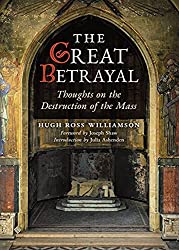
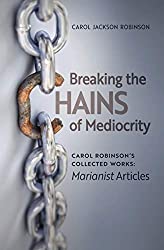


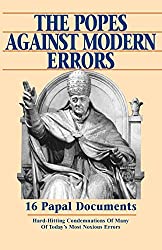
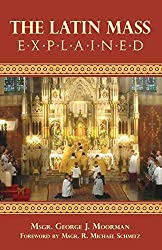
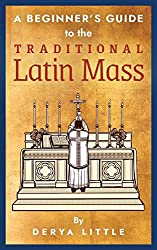
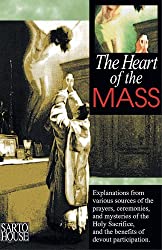
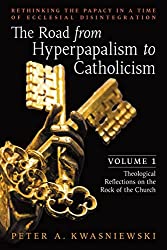
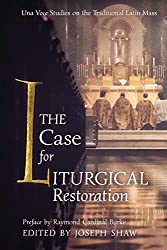

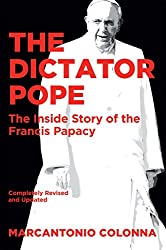
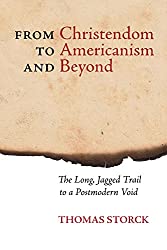

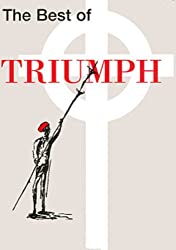
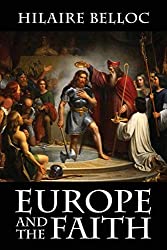
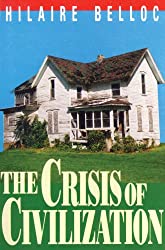
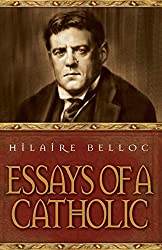
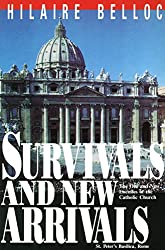
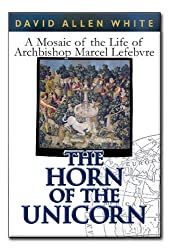
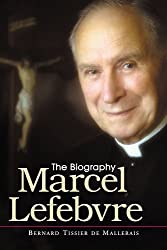
Comments
comments are currently closed
4 responses to “On Archbishop Lefebvre: The Horn of the Unicorn by David Allen White (Review)”
[…] Cor Jesu Sacratissimum HomeAbout UsKim's WeblogRoger's WeblogWebburstsReviewsIn MemoryArticlesUK StoreUS Store « The Tide is Turning … Book Review: The Horn of the Unicorn by David Allen White » […]
Excellent book! Santo subito!
Matthe – thank you. Appreciate your commenting here, your website and various impulses/initiatives I have seen from you. And I am also sorry that illness (nothing serious) has meant that this has taken me so long to acknowledge …
[…] Revolutionary Catholic France that Valentin Tomberg led me to, that far away Catholic France in which the Traditional Catholic movement is rooted, that far away Catholic France which still has so much to say to us today. For Eliphas Levi, you […]